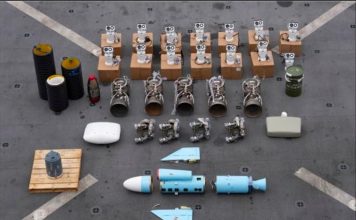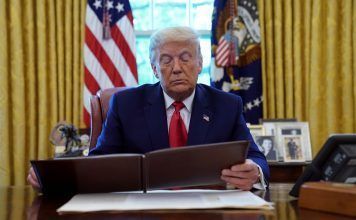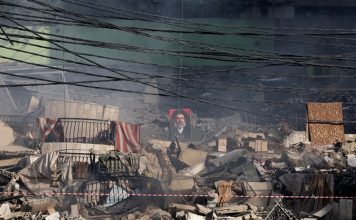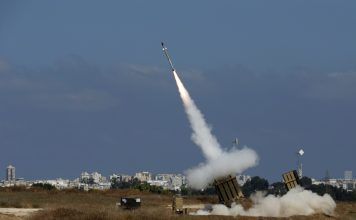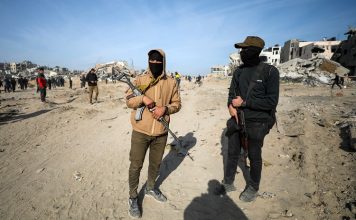April 18 (Reuters) – Saudi and Iranian officials held direct talks this month in a bid to ease tensions between the two foes, a senior Iranian official and two regional sources said, as Washington works to revive a 2015 nuclear pact with Tehran and end the Yemen war.
The April 9 meeting in Iraq, first reported by the Financial Times on Sunday, did not lead to any breakthrough, the Iranian official and one of the regional sources familiar with the matter said.
The regional source said the meeting focused on Yemen, where a military coalition led by Saudi Arabia has been battling the Iran-aligned Houthi group since March 2015.
“This was a low-level meeting to explore whether there might be a way to ease ongoing tensions in the region,” the Iranian official said, adding that it was based on Iraq’s request.
Iraq Attacks Deepen Security Woes as Global, Local Rivals Clash
Iraq’s prime minister held talks with Saudi Arabia’s crown prince earlier this month and also visited the United Arab Emirates.
The second regional source said the talks also touched on Lebanon, which is facing a political vacuum amid a dire financial crisis. Gulf Arab states are alarmed by the expanding role of Lebanon’s Iran-backed Hezbollah movement.
Saudi authorities did not immediately respond to a Reuters request for comment. The FT report said that a senior Saudi official denied there had been any talks with Iran.
Sunni Gulf power Saudi Arabia cut ties with Shi’ite Iran in January 2016 following the storming of its embassy in Tehran in a row over Riyadh’s execution of a Shi’ite Muslim cleric.
A Western diplomat in the region said the United States and Britain were informed in advance of the Saudi-Iran talks but had “not seen the outcome”.
Washington and Tehran are holding indirect talks in Vienna to revive the world powers’ nuclear accord with Iran, which former U.S. President Donald Trump quit in 2018. Tehran has breached several nuclear restrictions after Trump reimposed sanctions.
Riyadh last week called for a nuclear deal with stronger parameters and for involvement of Gulf states, which are concerned about Iran‘s missiles programme and its support for regional proxies.
The United States is also pressing for a ceasefire deal in Yemen which Riyadh and the Saudi-backed Yemeni government have welcomed. The Houthis have yet to accept and have kept up cross border missile and drone attacks on Saudi cities.
A Saudi foreign ministry official told Reuters last week that confidence-building measures could pave the way for expanded nuclear talks with Gulf Arab participation.
(Reporting by Dubai and Baghdad bureaus; additional reporting by Aakriti Bhalla in Bengaluru; Writing by Ghaida Ghantous; Editing by Gerry Doyle, Raissa Kasolowsky, Alexandra Hudson)

